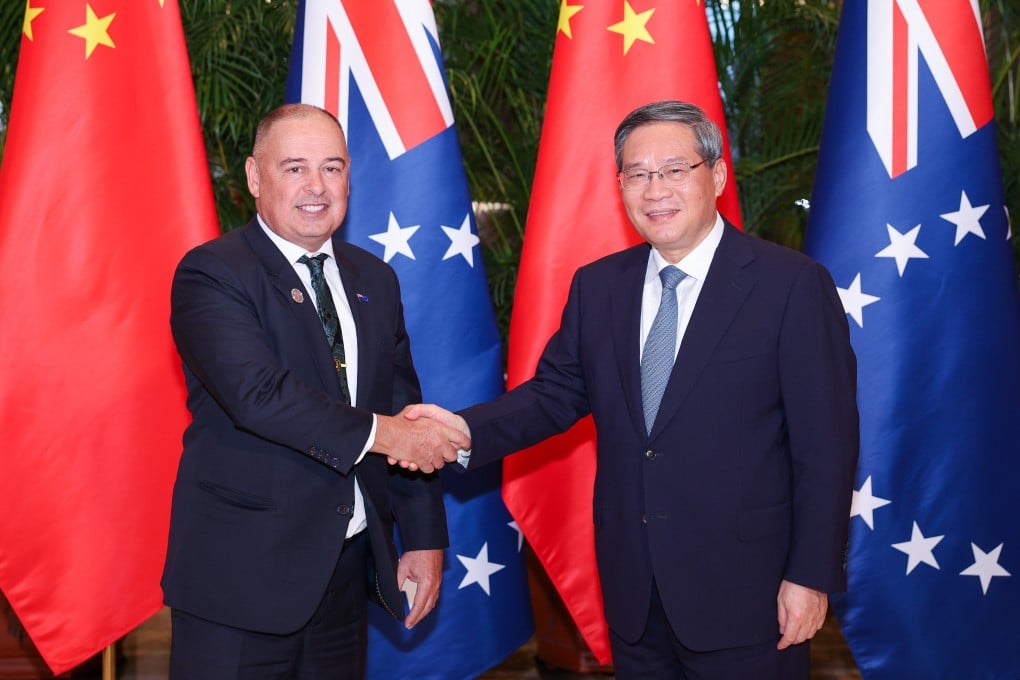NZ Suspends $11M Funding Amid Deepening China-Cook Islands Ties
New Zealand Cook Islands funding has abruptly frozen millions in development funding to the Cook Islands, following a surprise series of agreements between the Pacific nation and China. The February 2025 deals cover infrastructure, tourism, technology, and critically, deep-sea mineral exploration—an area of intensifying geopolitical concern for the West.
New Zealand Foreign Minister Winston Peters said trust had been eroded after being blindsided by the arrangements, noting that NZ$18.2M (USD $11M) in funding would be suspended until the Cook Islands takes “concrete steps to repair the relationship.”

Pacific Region Becomes New Battleground in US-China Rivalry
The Cook Islands’ sudden shift toward China comes amid escalating Chinese influence throughout the Pacific. Following its contentious 2022 security pact with the Solomon Islands, China has deepened its partnerships with numerous small island nations, raising security concerns in capitals from Canberra to Washington.
“Funding relies on a high trust bilateral relationship,” Peters emphasized, making clear that New Zealand expects greater transparency from its smaller neighbour. Meanwhile, Cook Islands authorities assured Wellington of their intent to resolve the matter swiftly, stressing their appreciation for decades of support from New Zealand.
Deep-Sea Mining: The Next Frontier of Geopolitical Competition
Central to the controversy is the Cook Islands’ rich seabed, which holds vast reserves of polymetallic nodules containing cobalt, nickel, and rare earth elements crucial for global technology industries. These critical minerals are at the heart of China’s resource acquisition strategy as it seeks to secure supply chains for its rapidly growing tech and energy sectors.
According to scientific studies, the Clarion-Clipperton Zone near the Cook Islands offers one of the world’s most promising sources for such deep-sea mining, sparking fierce environmental and geopolitical debates. Environmental groups have also raised concerns about potential irreversible damage to fragile marine ecosystems.
Backlash in Rarotonga: Protests and Political Turmoil
Domestically, Prime Minister Mark Brown has faced intense criticism. Protests broke out across Rarotonga, with demonstrators accusing the government of sacrificing national sovereignty for short-term economic gains. Brown narrowly survived a no-confidence vote following the announcement of the deals.
Brown defended the agreements, stating that they serve his country’s “long-term interests” and insisting that they do not diminish the Cook Islands’ “longstanding partnerships” with New Zealand and Australia. However, many citizens remain skeptical about Beijing’s intentions in the region.

New Zealand’s Special Relationship with Cook Islands Under Strain
The Cook Islands and New Zealand share a unique “free association” agreement. Under this pact, New Zealand provides critical defence and foreign affairs support, while Cook Islanders enjoy full New Zealand citizenship. Approximately 100,000 Cook Islanders reside in New Zealand and Australia, compared to just 15,000 at home.
Historically, this arrangement has fostered close cultural, political, and economic ties. However, this episode marks a potential turning point in the long-standing bond, as global power rivalries seep into even the most remote corners of the Pacific.
Strategic Timing: New Zealand PM Visits Beijing Amid Diplomatic Tensions
Ironically, New Zealand Prime Minister Christopher Luxon was visiting China at the time the funding freeze was announced. His scheduled meeting with Chinese President Xi Jinping underscores the increasingly delicate balancing act faced by Pacific democracies—maintaining economic relations with China while managing growing strategic anxieties.
Wellington insists the aid freeze decision is based solely on its special relationship with the Cook Islands, not aimed at Beijing directly. But few analysts doubt that China’s broader Pacific strategy is behind New Zealand’s stern response.
Conclusion: The Pacific’s Strategic Future Remains Uncertain
The Cook Islands-China agreements have once again highlighted the rising geopolitical contest in the Pacific. With resources, influence, and strategic positions at stake, small island nations like the Cook Islands face growing pressure to balance economic opportunity with sovereignty and security concerns. The resolution of this latest diplomatic row will serve as a key indicator of how these delicate Pacific alliances evolve in an era of superpower rivalry. [Read more Pacific geopolitics updates]
